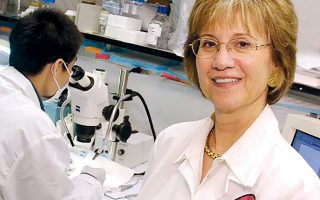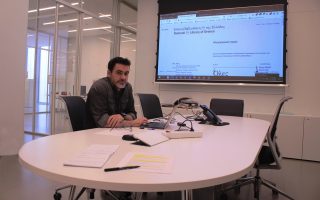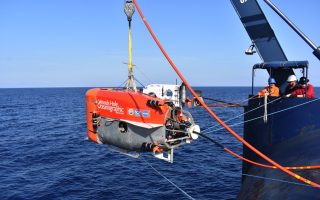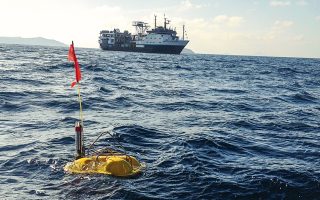Summer course shows teachers how to make physics kid-friendly
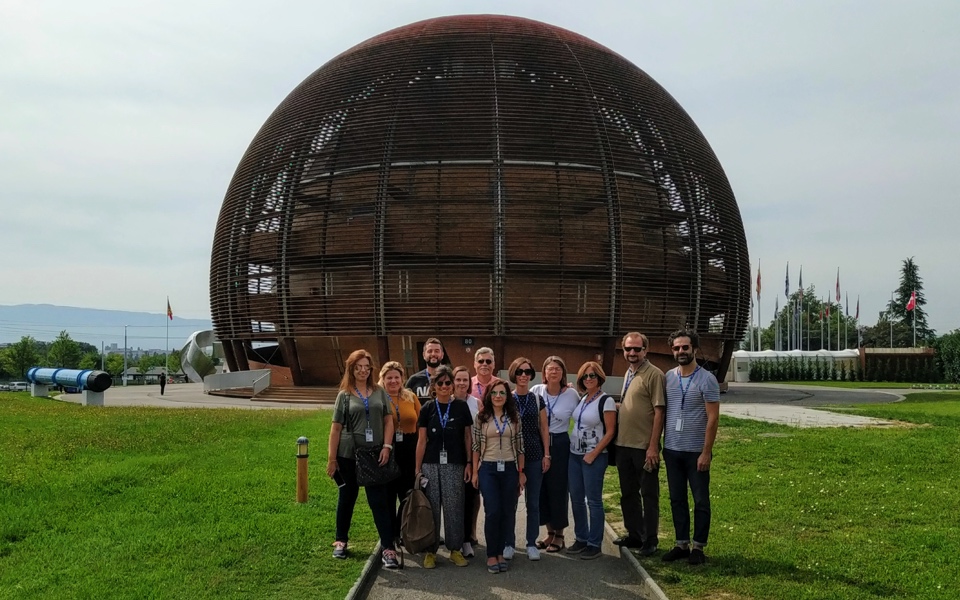
How would you feel if your 12-year-old started doing physics experiments at home in the kitchen? Assuming their teachers have participated in the Playing with Protons course at CERN, they’d know exactly what they were doing. But what exactly is this course?
Every summer for the past five years, the Playing with Protons initiative has been inviting 10 primary school teachers to the European Organization for Nuclear Research (CERN) in Geneva to introduce them to ways of teaching cutting-edge science to students aged 10 and above. The course is supported by the EU-funded projects Open Schools for Open Societies, Frontiers, and Reinforce. Dr Angelos Alexopoulos and Dr Stephanos Cherouvis, who are in charge of the coordination and implementation of the course, explained this fascinating initiative to Kathimerini.
“We started this initiative precisely because we want to demystify science and show that it is not an isolated subject that only concerns men in research labs. Science is everywhere, it is a verified form of explaining surrounding phenomena, down to the simplest event. We want to open the science ‘black box’ and show the world that its components make sense.”
The question of when children should ideally start learning about science would likely leave many scientists and non-scientists alike scratching their heads. Alexopoulos and Cherouvis have thought hard about this: “The evidence we looked at was telling us: Early enough so that the matter does not build up to seem unconquerable in children’s minds, but not so early that the children immediately loose interest. A basic level of conceptualization is necessary, as well as reading and counting, and, most of all, curiosity.”
So what how deeply should a child go into the subject at primary school?
“Our aim is not to groom particle physicists from the age of 10. Our main goal is to transmit our fascination with science to the primary school teachers so that they can carry on this transmission after the program. In order to do so, we must find a balance in teaching interesting and complex subjects without scaring off the children. And the teachers, too. Most of them are generalists so we start by introducing themes that lie on the edge of the school curriculum, like the nature of matter, or the fundamental forces of nature.”
In order to arouse children’s curiosity about scientific research, technology and innovation, Playing with Protons introduces teachers to a variety of workshops and small experiments using concepts that children can easily relate to. One of these activities is “kitchen physics,” which consists of using kitchen utensils and basic ingredients to simulate the larger experiments done at CERN. It is a great introductory activity which shows children that science is part of their lives and experiments can be performed everywhere – including in schools that don’t have all the right laboratory equipment, the scientists added.
Additionally, the initiative is aimed at addressing the gender gap and fighting gender stereotypes in science, and both researchers take the issue very seriously.
“We always look for balance. We try to battle the gender gap by aiming to achieve a 50/50 female/male ratio in our teacher selection.”
The initiative’s policy is to systematically spread the knowledge and good practices acquired: A Playing with Protons online teacher community has been established to help teachers share their practices and methods.
According to Alexopoulos, “Playing with Protons gives teachers wings to continue their professional development. The Playing with Protons initiative works like a chain reaction: Each teacher out of the 10 will go back to their school and transmit what they have learned to their colleagues. Each of these colleagues has around 30 students. That’s 180 students who can spread the word. Over 9,000 people are touched by the program overall, in over 100 schools. Right there – that is the true output.”
This year, the Playing with Protons initiative has received a record number of applications: More than 300 teachers from Greek primary schools have applied so far, and that number is expected to increase further ahead of the application deadline on February 29.
